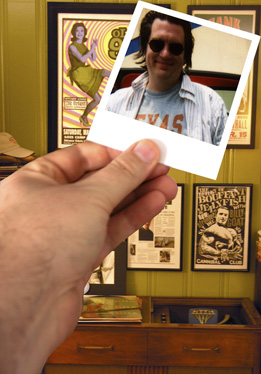Slate takes to task those who are going easy on David Sedaris for maybe playing a little fast and loose with the facts. But is a little embellishment in the name of a good story such a bad thing?
Sedaris and company want to erect a penumbra that shields humorists from criticism when they blend fiction into their nonfiction but still insist on calling it nonfiction. The logic behind this is difficult to follow. If writing fiction is the license Sedaris and other nonfiction humorists need to get at "larger truths," why limit this exemption to humorists? Let reporters covering city hall, war, and business to embellish and exaggerate so they can capture "larger truths," too. I'm sure that Stephen Glass, Jayson Blair, Christopher Newton, and Slate's "monkeyfishing guy" would back this idea, especially if applied retroactively.
Jon Carroll thinks humorists require "latitude" to make things funny, a notion I find bogus. I find stories that are absolutely true—like the time one of my neighbors, dressed up to party on Saturday night, fell into a 55-gallon drum filled with human excrement and urine—the funniest.
OK, that is pretty funny about the neighbor. But is it really so wrong that some don't want to hold David Sedaris to the same standard as Judith Miller?

1 comment:
the truth is it's _all_ fiction
history is just the lie that gets repeated the most often etc.
we remember the story, not the event
and the story we 'member tells who we are
Post a Comment